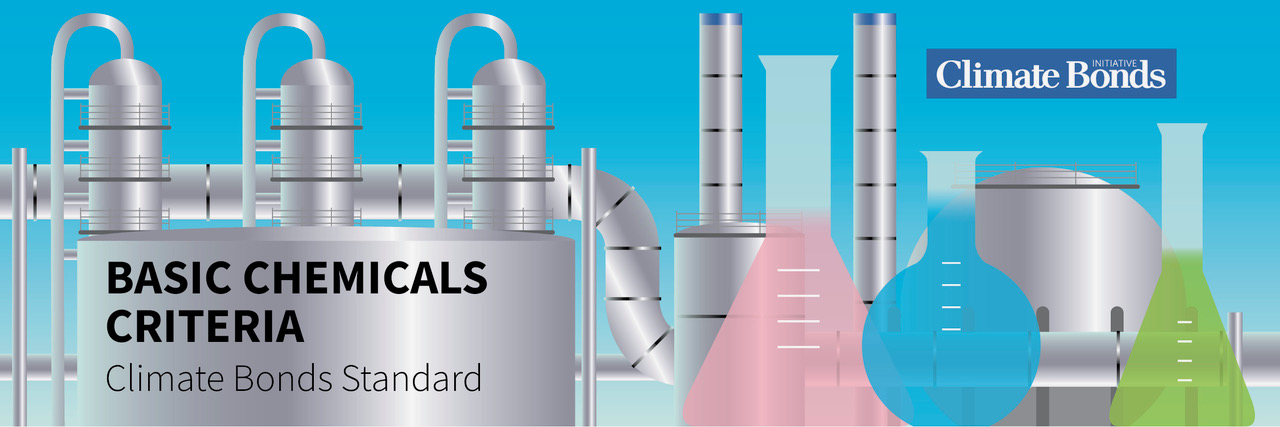To build a net zero economy, the world needs to build a net zero chemicals industry. Chemicals are present in over 90% of manufactured goods, and account for a large portion of global emissions. But in order for this large and high-emitting sector to transition, it needs clear guidance, frameworks, and standards to facilitate its transition to net zero.
That’s why Climate Bonds has released its new policy brief, “European Union Chemical Sector Transition.” This brief aims to guide the EU chemicals sector toward a rapid, robust, and credible transition to net zero. There is a small window of opportunity to equip the European chemicals sector with the green technologies necessary to reach net zero by 2050, and without clear policy guidance and support, the industry won’t be able to reach its goals.
Chemicals — an essential step on the road to net zero
Chemicals are present in over 90% of manufactured goods, which evidences its strategic role in our economy. Moreover, this importance is accentuated by the fact that chemicals are a necessary component of the key net-zero technologies and products such as renewable energy components, electrical batteries, and building insulation. Currently, chemical production depends entirely on fossil fuels extraction, both for the purposes of carbon feedstock sourcing as well as to power manufacturing processes to produce chemicals.
Therefore, it is urgent for the chemicals industry to transition towards net-zero emissions. This transition is strategic to reduce overall emissions, as emissions derived from chemicals are often underestimated. Most of them are Scope 3, meaning out of the direct supply chain, and are derived from feedstock sourcing and end-of-life treatment of chemical products. Also, in order to achieve the much-needed global phaseout of fossil fuel extraction, the chemical industry needs to identify and develop alternative carbon feedstocks while simultaneously promoting alternative energy use.
Policy Guidance — The key to a rapid transition
The European Union needs to fast-track the transition of its chemicals industry, which ranks second after China in global sales currently. This transition will require significant private funding from investors, and this private funding requires credibility of the industry’s transition efforts. The Basic Chemicals Criteria unveiled by the Climate Bonds Initiative end of 2022 (to be followed in the future by additional Criteria to cover to other parts of the chemical industry) is precisely aimed at promoting greater use of standards. Standards are an important enabler of the transition to net-zero.
However, this progress is not moving fast enough. One reason is that, up until recently, the chemicals industry has not had clear transition pathways. The recent EU Chemicals Transition Pathway unveiled by the European Commission in early 2023 does not provide sufficient specification in terms of the levers to be implemented by the EU chemicals industry to achieve its decarbonisation targets.
This is why the Climate Bonds Initiative Transitions programme is releasing an EU Chemical sector Transition Policy Brief to link the policy and technology levers that will enable the achievement of net-zero emissions by the EU chemicals sector with the role of private investors to provide the required financing through sustainable finance instruments, and very importantly GSS+ (Green, Social, Sustainable and Other Labelled) bonds.
Key recommendations from this Policy brief include stimulating the demand for low-carbon chemicals, curbing demand associated with plastics and fertilizers production, ensuring a supply of renewable energy and low-carbon hydrogen, promoting recycling at end-of-life and electrification as key technology levers, advancing in Scope 3 target setting and disclosure by chemical companies, and expanding the EU Carbon Border Adjustment Mechanism (CBAM) scope to include polymers and organic chemicals.

